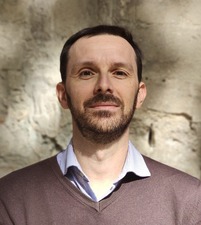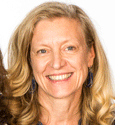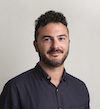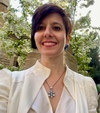Studying at the University of Verona
Here you can find information on the organisational aspects of the Programme, lecture timetables, learning activities and useful contact details for your time at the University, from enrolment to graduation.
Academic calendar
The academic calendar shows the deadlines and scheduled events that are relevant to students, teaching and technical-administrative staff of the University. Public holidays and University closures are also indicated. The academic year normally begins on 1 October each year and ends on 30 September of the following year.
Course calendar
The Academic Calendar sets out the degree programme lecture and exam timetables, as well as the relevant university closure dates..
| Period | From | To |
|---|---|---|
| 1 A | Sep 26, 2022 | Nov 5, 2022 |
| 1 B | Nov 14, 2022 | Dec 22, 2022 |
| 2 A | Feb 13, 2023 | Apr 6, 2023 |
| 2 B | Apr 12, 2023 | May 27, 2023 |
| Session | From | To |
|---|---|---|
| Sessione invernale | Jan 9, 2023 | Feb 11, 2023 |
| Sessione estiva | Jun 5, 2023 | Jul 29, 2023 |
| Sessione autunnale | Aug 28, 2023 | Sep 23, 2023 |
| Session | From | To |
|---|---|---|
| Sessione straordinaria (a.a. 2021/22) | Mar 31, 2023 | Apr 6, 2023 |
| Sessione estiva | Jul 10, 2023 | Jul 15, 2023 |
| Sessione autunnale | Nov 6, 2023 | Nov 11, 2023 |
| Sessione straordinaria | Apr 2, 2024 | Apr 8, 2024 |
| Period | From | To |
|---|---|---|
| Chiusura edifici | Oct 31, 2022 | Oct 31, 2022 |
| Festa di Ognissanti | Nov 1, 2022 | Nov 1, 2022 |
| Festa dell'Immacolata | Dec 8, 2022 | Dec 8, 2022 |
| Chiusura edifici | Dec 9, 2022 | Dec 10, 2022 |
| Vacanze di Natale | Dec 23, 2022 | Jan 7, 2023 |
| Vacanze di Pasqua | Apr 7, 2023 | Apr 10, 2023 |
| Festa della Liberazione | Apr 25, 2023 | Apr 25, 2023 |
| Festa del lavoro | May 1, 2023 | May 1, 2023 |
| Festa del Santo Patrono | May 21, 2023 | May 21, 2023 |
| Festa della Repubblica | Jun 2, 2023 | Jun 2, 2023 |
| Chiusura estiva | Aug 13, 2023 | Aug 19, 2023 |
Exam calendar
Exam dates and rounds are managed by the relevant Culture and Civilisation Teaching and Student Services Unit.
To view all the exam sessions available, please use the Exam dashboard on ESSE3.
If you forgot your login details or have problems logging in, please contact the relevant IT HelpDesk, or check the login details recovery web page.
Should you have any doubts or questions, please check the Enrollment FAQs
Academic staff
 riccardo.bertolazzi@univr.it
riccardo.bertolazzi@univr.it
 luca.bochicchio@univr.it
luca.bochicchio@univr.it
 evita.calabrese@univr.it
evita.calabrese@univr.it
 alberto.scandola@univr.it
alberto.scandola@univr.it
Study Plan
The Study Plan includes all modules, teaching and learning activities that each student will need to undertake during their time at the University.
Please select your Study Plan based on your enrollment year.
1° Year
| Modules | Credits | TAF | SSD |
|---|
1 module among the following2 modules among the following1 module between the following2° Year activated in the A.Y. 2023/2024
| Modules | Credits | TAF | SSD |
|---|
1 module among the following2 modules among the following1 module among the following| Modules | Credits | TAF | SSD |
|---|
1 module among the following2 modules among the following1 module between the following| Modules | Credits | TAF | SSD |
|---|
1 module among the following2 modules among the following1 module among the following| Modules | Credits | TAF | SSD |
|---|
Legend | Type of training activity (TTA)
TAF (Type of Educational Activity) All courses and activities are classified into different types of educational activities, indicated by a letter.
Linguistic theories, texts, and contexts (2022/2023)
Teaching code
4S007401
Teacher
Coordinator
Credits
6
Also offered in courses:
- General Linguistics of the course Master’s degree in Historical Studies (interuniversity)
Language
Italian
Scientific Disciplinary Sector (SSD)
L-LIN/01 - HISTORICAL AND GENERAL LINGUISTICS
Period
1 A, 1 B
Learning objectives
The main aim is to introduce the themes of textual syntax from the point of view of theoretical linguistics and pragmatics (cohesion and coherence of the text, anaphora, deixis, information structure). We start from more general considerations on the concept of language and on the centrality that the reflection on language has being having - and continues to have - in the contemporary cultural debate. Through online tests appropriately distributed and corrected during class some linguistic themes useful for the training of the teacher's cultural and professional figure will be reinforced. EXPECTED FORMATIVE RESULTS The course aims to provide students with a critical thinking about the fundamental concepts and methods of linguistics for the cultural and professional enrichment of the humanistic intellectual. At the end of the course the student must be able to: • describe the basics of language study; • recognize the fundamentals of the syntax of the text and of the information structure • know how to apply the acquired knowledge in the future study career.
Prerequisites and basic notions
Those of you who have never attended courses in glottology and linguistics will be able to agree on an exam that will allow you to recover this knowledge. Without prejudice to the willingness to help you even if you are not attending, I still invite you, if you can, to participate, even if in the first lessons the level should seem too dense and complicated.
Program
1. Introduction: consolidation of the basic notions of general and comparative glottology. Centered on the concept of lexicon, seen in the internal (mental lexicon), external (vocabulary), morphological, syntactic and semantic aspects. ––––
2. Text. The introductory part to the linguistics of the text starts from the notion of sentence, problematizes it and gives it a formal representation. We then move on to frame the concept of textual referent and the indexical elements functional to the cohesion of the text (anaphora and deixis). The relationship between the syntactic structure and the organization of information is then observed in order to achieve the framing of the glottological concept of text within 'speaking', that is, within the linguistic event.
BIBLIOGRAPHY: the handbook to study (complete) is:
-- C. Andorno Linguistica testuale. Un'introduzione, Roma 2003 (and follow. reprints).
––––
3. Course 22-23: Texts in the texts. The monographic part of 22-23 will address the relationship between texts and between textualities, introducing the schema of textual transcendence by G. Genette to move on to the concept of textuality mediated by textuality with the presentation of the category of 'pertext' in comics and on the internet.
––––
4. Reading. The extra reading of a classic of linguistics (or other text of agreed choice) is required to be agreed with the teacher on the basis of a list provided in the moodle course. ------
Seminars. A part of the course may possibly be dedicated to students coming from the master's degree in Historical Sciences.
Didactic methods
Classroom lectures, collaborative readings, online and classroom exercises, seminars. Absences: the lessons that could not be attended can be made up in collaboration with the teacher and with study colleagues. Those who cannot attend are invited to agree on a study program with the teacher
Learning assessment procedures
- Final interview.
- Classworks (absolved during the class period).
## All students, unless reasoned arrangements are made, are required to prepare for the final interview. Through term paper or reports, part of the exam requirements can be absolved (contact lecturer).
-- -- --
§§ Information for *the preparation of the exam*
Non-attenders: complete preparation of assigned and agreed upon texts is required.
-- -- --
Evaluation criteria
The exam verifies the knowledge acquired, the ability to apply it, the critical awareness, the property of expression, the independence in the study.
More specifically, the evaluation will take into account the following.
1- Your knowledge. Contents, notions and insights treated or proposed during class, and in the required bibliography. Assessed with interview. Parts of the program may be assessed through a written essay or a speech (upon agreement with the teacher).
2- Apply your knowledge in order to develope an ability to link together and rework the notions acquired. Assessed with team- or individual work ‘in itinere’, and during the final interview.
Furthermore the evaluation will consider the following criteria.
3- Critical thinking: reasoning systematically in order to motivate your answers and critically reflect upon them.
4- Communication skills: appropriateness, relevance and promptness of the answers.
5- Studying skills. Independence in finding and comparing any additional sources for the study.
Criteria for the composition of the final grade
The final grade depends entirely on the final interview. The ongoing work completes the applicative part of the class and does not affect the final grade.
Exam language
Italiano
Type D and Type F activities
COMPETENZE TRASVERSALI
| years | Modules | TAF | Teacher |
|---|---|---|---|
| 1° 2° | FAI Activities | F |
Edoardo Bianchi
(Coordinator)
|
| 1° 2° | Series of conferences Don Nicola Mazza University College | F |
Alessandra Zangrandi
(Coordinator)
|
| 1° 2° | Business English for everybody | F |
Serena Dal Maso
(Coordinator)
|
| 1° 2° | Russian for everybody | F |
Serena Dal Maso
(Coordinator)
|
| 1° 2° | Books and writings of the Greek world | F |
Paolo Scattolin
(Coordinator)
|
| 1° 2° | Music in History | F |
Vincenzo Borghetti
(Coordinator)
|
| years | Modules | TAF | Teacher |
|---|---|---|---|
| 1° 2° | FAI Activities | F |
Edoardo Bianchi
(Coordinator)
|
| 1° 2° | Series of conferences Don Nicola Mazza University College | F |
Alessandra Zangrandi
(Coordinator)
|
| 1° 2° | Conference PRIN "Ippolito Nievo tra i Mille" | F |
Alessandra Zangrandi
(Coordinator)
|
| 1° 2° | Business English for everybody | F |
Serena Dal Maso
(Coordinator)
|
| 1° 2° | Russian for everybody | F |
Serena Dal Maso
(Coordinator)
|
| 1° 2° | Books and writings of the Greek world | F |
Paolo Scattolin
(Coordinator)
|
| 1° 2° | Music in History | F |
Vincenzo Borghetti
(Coordinator)
|
| 1° 2° | Contemporary history seminars | F |
Renato Camurri
(Coordinator)
|
| 1° 2° | Text, author, audience. The forms of reception from antiquity to modernity | F |
Massimo Natale
(Coordinator)
|
| years | Modules | TAF | Teacher |
|---|---|---|---|
| 1° 2° | FAI Activities | F |
Edoardo Bianchi
(Coordinator)
|
| 1° 2° | Seminar Day “I would annex the planets if I could”. Representations of exploration and conquest between 19th and 20th century | F |
Luca Ciancio
(Coordinator)
|
| 1° 2° | Introduction to robotics for humanities students | F |
Paolo Fiorini
(Coordinator)
|
| 1° 2° | Opera Workshop | F |
Nicola Pasqualicchio
(Coordinator)
|
| 1° 2° | Reading the Middle Ages. Authors, Meetings, Debates | F |
Marco Stoffella
(Coordinator)
|
| years | Modules | TAF | Teacher | |
|---|---|---|---|---|
| 1° 2° | FAI Activities | F |
Edoardo Bianchi
(Coordinator)
|
|
| 1° 2° | Meeting cycle «Anniversari» | F |
Fabio Danelon
(Coordinator)
|
|
| 1° 2° | Conference "Franca Rame, not only an actress" | F |
Nicola Pasqualicchio
(Coordinator)
|
|
| 1° 2° | Ferments, experiments and meetings on the Italian dance and theatre scene between the eighteenth and nineteenth centuries | F |
Simona Brunetti
(Coordinator)
|
|
| 1° 2° | Festival of journalism | F |
Simona Brunetti
(Coordinator)
|
|
| 1° 2° | Introduction to robotics for humanities students | F |
Paolo Fiorini
(Coordinator)
|
|
| 1° 2° | Opera Workshop | F |
Nicola Pasqualicchio
(Coordinator)
|
|
| 1° 2° | Reading the Middle Ages. Authors, Meetings, Debates | F |
Marco Stoffella
(Coordinator)
|
|
| 1° 2° 3° | Conversations | F |
Nicola Pasqualicchio
(Coordinator)
|
|
| years | Modules | TAF | Teacher | |
|---|---|---|---|---|
| 1° | Laboratory of photo | F |
Carlo Vannini
(Coordinator)
|
|
| 1° 2° | Conference Civici Museum Verona | F |
Tiziana Franco
(Coordinator)
|
|
| 1° 2° | Know to respect and respect each other | F |
Nicoletta Zerman
(Coordinator)
|
|
| 1° 2° | International Congress CRIER “Verona at the Centre of Europe: Diplomacy, Literature and the Arts at the Congress of 1822” | F |
Paolo Pellegrini
(Coordinator)
|
|
| 1° 2° | Dialogoi. Inter-university reading seminar on classical texts | F |
Gherardo Ugolini
(Coordinator)
|
|
| 1° 2° | Future's Festival | F |
Alessandra Zangrandi
(Coordinator)
|
|
| 1° 2° | For the centenary of the death of Giovanni Verga. Study meeting | F |
Fabio Danelon
(Coordinator)
|
|
| 1° 2° | Literature and dance project: Pier Paolo Pasolini (Life, death and miracles) | F |
Nicola Pasqualicchio
(Coordinator)
|
|
| 1° 2° | You aint't heard nothing yet. The transition from the silents to the talkies (Bridge Film Festival) | F |
Alberto Scandola
(Coordinator)
|
|
Career prospects
Module/Programme news
News for students
There you will find information, resources and services useful during your time at the University (Student’s exam record, your study plan on ESSE3, Distance Learning courses, university email account, office forms, administrative procedures, etc.). You can log into MyUnivr with your GIA login details: only in this way will you be able to receive notification of all the notices from your teachers and your secretariat via email and soon also via the Univr app.
Graduation
List of theses and work experience proposals
| theses proposals | Research area |
|---|---|
| tesi di Glottologia, Storia comparata, Linguistica storica | ENGLISH LANGUAGE - Grammar and Syntax – Grammatik und Syntax |
| tesi di Glottologia, Storia comparata, Linguistica storica | GERMANIC LANGUAGE - Dialectology - Dialektologie |
| tesi di Glottologia, Storia comparata, Linguistica storica | HUMANITIES & SOCIAL STUDIES - HUMANITIES & SOCIAL STUDIES |
| tesi di Glottologia, Storia comparata, Linguistica storica | Indo-European languages & literatures - Indo-European languages & literatures |
| tesi di Glottologia, Storia comparata, Linguistica storica | LINGUISTICS - LINGUISTICS |
Gestione carriere
Linguistic training CLA
Double Degree
The University of Verona, through a network of agreements with foreign universities, offers international courses that enable students to gain a Double/Joint degree at the time of graduation. Indeed, students enrolled in a Double/Joint degree programme will be able to obtain both the degree of the University of Verona and the degree issued by the Partner University abroad - where they are expected to attend part of the programme -, in the time it normally takes to gain a common Master’s degree. The institutions concerned shall ensure that both degrees are recognised in the two countries.
Places on these programmes are limited, and admissions and any applicable grants are subject to applicants being selected in a specific Call for applications.
The latest Call for applications for Double/Joint Degrees at the University of Verona is available now!
Student mentoring
Requisiti classi di abilitazione insegnamento
Requisiti necessari per accedere alle classi di abilitazione per l'insegnamento.
vedi allegato pdf
Inoltre, per informazioni sui 24 CFU nelle discipline antropo-psico-pedagogiche e nelle metodologie e tecnologie didattiche, si veda -> LINK
Documents
| Title | Info File |
|---|---|
|
|
pdf, it, 307 KB, 30/11/21 |

 0458028376
0458028376



































